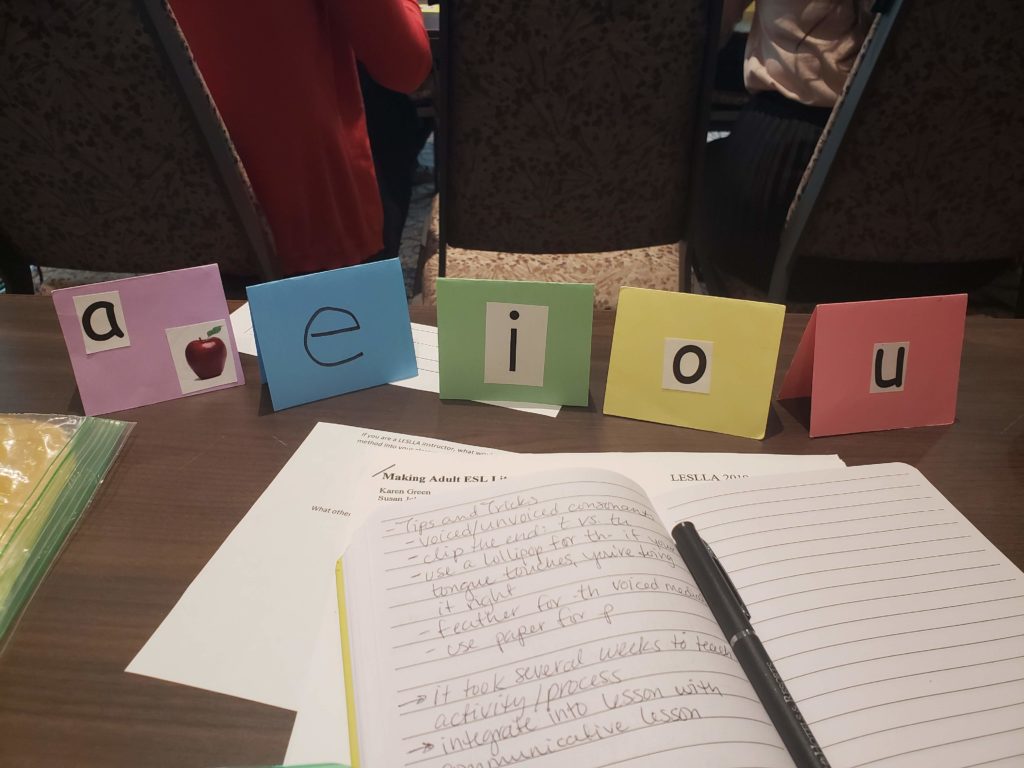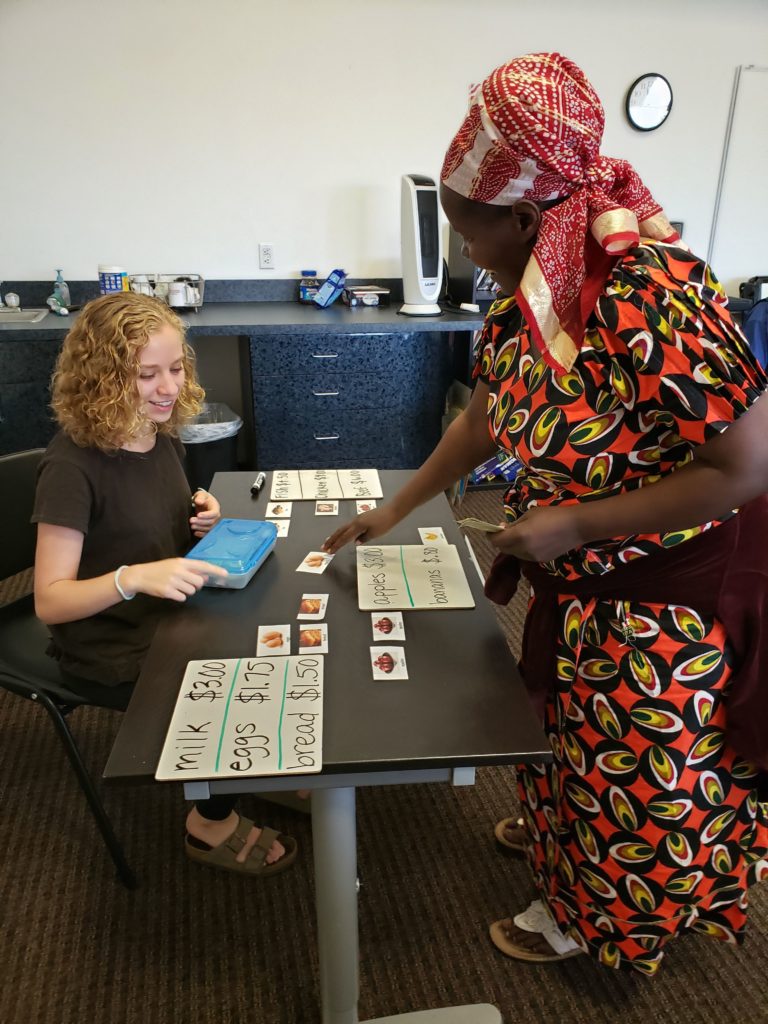New English class helps pre-literate adult learners
In a conference room at the Exodus office, four women sit around a table. They are elders, Congolese grandmothers who have ridden for an hour on the bus to come to English class today. Their heads are bent in concentration, their hands shaking slightly as they copy the letter “b.” Eight, nine, ten times they write it, then pause, laughing a little and letting out a sigh as they raise their eyes to take a short break. The women start to chat among themselves, and through the Kinyarwanda interpreter, they share some thoughts with their teacher.
One woman says, “When we were in Africa, people told us we were too old to learn. They said that in America we would just sit around all day and do nothing. But now we have something to do besides just cooking. We go to school!”
These women are part of a new literacy class that Exodus teachers started this fall. For years, Exodus has provided a comprehensive ESL program focused on the skills that newcomers need to be successful and self-sufficient in the U.S. But these learners needed something more. Raised in rural Africa, they spent their lives farming and caring for children and never had the chance to go to school. Now, they are getting an education for the first time.
The literacy class focuses on foundational skills such as associating letters with sounds, learning to track written language from left to right, and properly forming letters. It started as a once-a-week class taught by Exodus Director of Self-Sufficiency Programs Kari Moore, and quickly expanded to four days a week under the guidance of LCORE Coordinator Marian Fox and a number of specially trained volunteers.
Unlike other Exodus ESL classes, the literacy class uses an interpreter about once a week in order to fully explain the new concepts to students. As one student said, “Before, we weren’t retaining much from the class. But now we are learning the letters and we are really making progress!”
Despite the growing number of low-literacy adult learners, not much is taught in conventional TESOL courses about how to work with these learners. To bridge this gap, Exodus has invested in further training for our staff by sending teachers to the TESOL International Convention in Atlanta and the LESLLA (Literacy Education and Second Language Learning for Adults) Annual Symposia in Pittsburgh, where they received further training on techniques specific to these learners. In addition, Exodus is partnering with the Immigrant Welcome Center and Indy Reads to host “study circles” for teachers of low-literacy adult English Language Learners, to be held this January and February. The study circles will expand the number of teachers in Indianapolis who are specially trained to help this population, who are so often left behind in traditional adult ESL classrooms.
Back in the classroom, teacher Kari Moore talks with students about their goals.
“If I could just read the Psalms, I’d be happy.”
“I want to read street signs so that if I get lost, I know where I am.”
“Reading connects you to another world. It takes you away from your problems.”
When asked to explain more, this last student says that when she’s sad, her youngest daughter reads her funny stories and they laugh, and she feels better. Though she can’t yet read on her own, she recognizes the tremendous richness that literacy adds to life, and she is committed to gaining this skill for herself. And so she comes, week after week, to make small steps toward reading on her own.
In literacy class, progress is slow. We often spend a whole two-hour class period on just a few letters and sounds, and then repeat it all the next day, and the next.
When a student is approaching literacy for the first time after 60 hard years of life, followed by the upheaval of moving from a familiar if troubled home to a new life in America, we expect nothing less. But our students know how to work hard, how to persevere, and how not to give up.
One woman shares a simple but profound success story: “Now I know which medication to take, because I can recognize my name.” These are the victories we will continue to fight for, one letter at a time.



